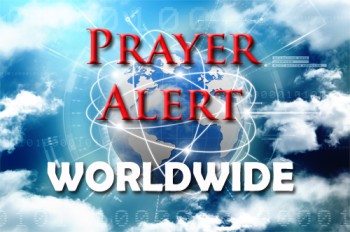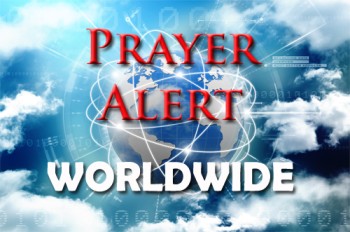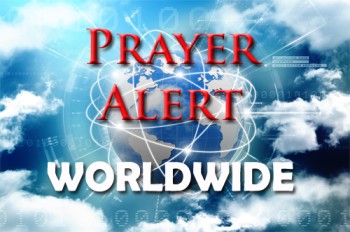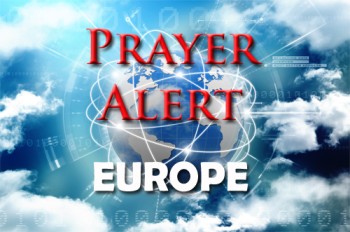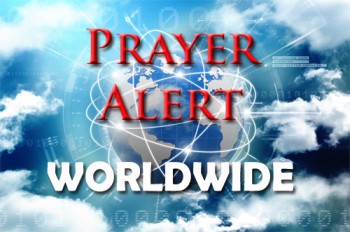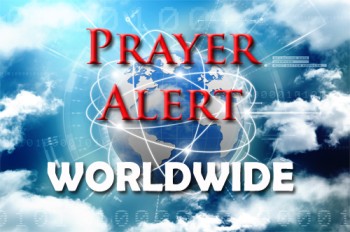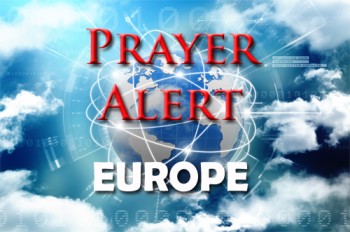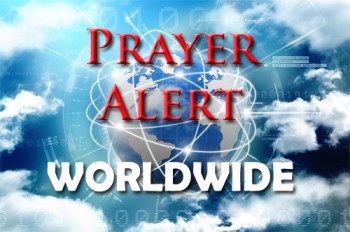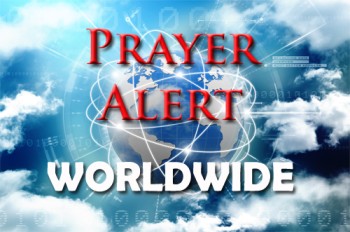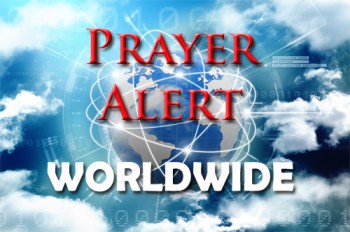Displaying items by tag: Donald Trump
Donald Trump: a raft of executive orders
Donald Trump began his second term as president with a flurry of executive orders, overturning many Biden-era policies and solidifying his ‘America First’ agenda. These included reinstating the construction of the border wall with Mexico, withdrawing from the WHO (again), and reintroducing the death penalty for undocumented immigrants who commit capital crimes. He also abolished government-funded gender diversity programmes, stating that there are only men and women. Environmental policies were rolled back as he exited the Paris climate agreement and expanded fossil fuel drilling. He also pardoned over 1,600 individuals involved in the 2021 Capitol riot. Other actions included pausing foreign aid for ninety days, creating a department of government efficiency under Elon Musk, and extending the deadline for TikTok's compliance with ownership laws. Critics argue these orders fuel division, threaten democracy, and undermine progress on social and environmental issues. His swift actions underline his intent to shape policy decisively, even as legal and Congressional challenges loom.
Donald Trump: bishop’s sermon at inaugural service
In her sermon during the inaugural prayer service at Washington’s National Cathedral, Bishop Mariann Budde spoke directly to Donald Trump and J D Vance. She challenged Trump’s recent executive orders, including policies affirming biological distinctions between men and women, trying to end birthright citizenship, and intensifying immigration measures. Speaking of immigrants' contributions and the fears of LGBTQ+ children, Budde called for mercy and compassion, emphasising Christian teachings of kindness to strangers. She concluded by urging Trump to alleviate the fears of children worried about deportations and show mercy to refugees fleeing persecution. Afterwards, Trump said he ‘didn't think it was a good service’, and one Republican congressman sarcastically suggested she be deported. The bishop is known for her past criticism of Trump, such as his controversial 2020 photo holding a Bible outside a church.
Cuba: USA set to remove ‘terrorism’ designation
As Joe Biden nears the end of his term, he is set to remove Cuba’s designation as a ‘state sponsor of terrorism’. This decision comes after an assessment found no evidence supporting Cuba’s continued listing. However, with Donald Trump soon to take office, the move may be symbolic and subject to reversal. Cuban officials welcomed the ‘overdue’ action, pointing out the harm which the designation caused to their economy and population. The designation, originally made in 1982 under Ronald Reagan, has been rescinded and reinstated several times. While some Republicans plan to challenge the move, the change could allow US humanitarian organisations to provide aid to Cuba without facing sanctions. In response, Cuba announced the release of 553 prisoners, including some linked to the anti-government protests in 2021.
Ukraine: different attitudes from Trump and Biden
Donald Trump has expressed sympathy for Russia’s opposition to Ukraine joining NATO, suggesting such membership provokes Moscow and risks escalating conflict. Trump criticised the Biden administration’s support for Ukraine’s NATO ambitions, stating that Russia has long opposed NATO’s presence near its borders. Meanwhile, the Biden administration is preparing a significant final weapons package for Ukraine before the transition of power. While details remain unclear, it follows earlier military aid, with most promised equipment already delivered. Ukraine’s foreign minister announced the rescheduling of a meeting with Trump’s special envoy, emphasising the need for a meaningful dialogue. On the battlefield, tensions have escalated. Ukraine reported 94 clashes in Russia’s Kursk region, double the prior day’s count, and announced a new offensive. Fighting persists in Kurakhove, where Russia claims control, but Ukrainian forces dispute this, accusing Russia of using scorched-earth tactics. Both nations report heavy losses, but independent verification remains elusive.
Celebrating the 25th anniversary of Panama Canal transfer
On 31 December Panama celebrated the 25th anniversary of reclaiming the Panama Canal from US control. President José Raúl Mulino has rejected recent comments by Donald Trump suggesting that the USA might try to reclaim it; he commented, ‘(It) will stay in our hands for ever’. The transfer of the canal in 1999, ending 85 years of US administration, was hailed as a landmark moment in Panamanian sovereignty. The canal, which remains a crucial global shipping route, is vital to the country’s economy, accounting for about 20% of its annual revenue. Challenges emerged in 2023 as droughts reduced transit capacity, forcing higher shipping fees. Although operations have normalised since then, price increases are anticipated next year.
Canada: Trudeau’s government in turmoil
Justin Trudeau’s government is facing turmoil following the abrupt resignation of his finance minister, Chrystia Freeland. This was sparked by disagreements with Trudeau on how to handle the threats made by Donald Trump, who has vowed to impose a levy of 25% on imported Canadian goods unless the shared border is made more secure. Freeland accused Trudeau of prioritising ‘costly political gimmicks’ over addressing the economic risks posed by Trump’s policies. Her departure blindsided the government, bringing Trudeau and his shaky minority Liberals to the brink - exacerbated by losing a by-election in British Columbia. There have been calls from opposition leaders but also members of his own party for Trudeau to resign, and his approval rate is now only 28%. With the next federal election due by October 2025, Canada's political landscape appears increasingly uncertain.
France: Notre Dame reopens after restoration
Notre Dame Cathedral is set to reopen on 7 December, after a five-year restoration following the devastating 2019 fire. Ceremonies will blend tradition and modernity, including a symbolic door-striking ritual led by Archbishop Laurent Ulrich and a solemn Mass on the Feast of the Immaculate Conception. (8 December). The restored cathedral features a mix of Gothic preservation and contemporary updates, such as a new altar and reliquary, sparking debate but garnering widespread admiration. Restoration efforts exceeded funding goals, totaling €700 million, and Paris anticipates a renewed influx of visitors. Somewhat surprisingly, Donald Trump’ will be there, joining nearly fifty world leaders: security will be tight, with 6,000 personnel deployed. Conspicuously absent, however, is Pope Francis, whose refusal to attend has fuelled speculation about the Vatican’s priorities. As Notre Dame prepares to welcome the faithful once again, its reopening symbolises resilience and the enduring significance of sacred spaces.
USA: Biden pardons his son, Trump appoints Jared Kushner’s father
Joe Biden has granted a full pardon to his son Hunter Biden, who faced sentencing for gun charges and federal tax evasion. Hunter had been convicted of lying on a federal gun purchase form in 2018 by denying his drug addiction and had pleaded guilty to failing to pay $1.4 million in taxes, which he later repaid with interest and penalties. The pardon, ahead of Hunter’s scheduled sentencing dates, cancels both convictions. Biden described the charges as politically motivated and unfair, arguing that similar offences often result in non-criminal resolutions. He condemned the justice department’s pursuit of his son, attributing it to congressional opponents' pressure. Hunter’s legal troubles, including struggles with addiction, have been a focus of considerable scrutiny over the past five years. Meanwhile, Donald Trump, who granted a total of 144 pardons in his first term of office, has appointed one of those who were pardoned (his son-in-law’s father, Charles Kushner) to be US ambassador to France: see
COP29: how much was achieved?
Developed nations at the COP29 summit in Baku committed to mobilising at least $300 billion annually for developing countries by 2035 to address climate change. However, this figure fell far short of the $1.3 trillion per year which had been demanded, leaving many deeply dissatisfied. The agreed amount includes contributions from private investment, but critics argue it lacks ambition and clarity. Tensions flared during chaotic negotiations, with India and Nigeria accusing the presidency of forcing the deal without proper consensus. Decisions on transitioning away from fossil fuels, highlighted in last year’s ‘global stocktake’, were deferred to COP30, but a milestone was achieved with the completion of Article 6 on carbon markets, finalising the Paris Agreement framework nearly a decade after its inception. The summit's outcomes were overshadowed by Donald Trump’s reelection and his pledge to withdraw the USA from the Paris Agreement. Also, host Azerbaijan, which sources two-thirds of its revenue from fossil fuels, faced accusations of conflict of interest and malpractice during the conference. For in-depth analysis of what happened, see the weblink.
USA: Trump’s shocking cabinet appointments
Donald Trump has initiated a bold and controversial strategy for his return to power, unveiling cabinet appointments which embody his disregard for traditional governance. These selections, including individuals with histories of legal trouble, extremist ideologies, and controversial actions, aim to dismantle governmental structures Trump perceives as obstacles. Key appointments, such as Pete Hegseth as secretary of defence, reflect his intent to politicise institutions like the military, while figures like Robert F Kennedy Jr as health secretary highlight his disdain for scientific consensus. Others, such as Vivek Ramaswamy and Elon Musk, are to downsize federal agencies radically under a vaguely defined ‘department of government efficiency’. Trump’s intent to bypass Senate confirmation through recess appointments signals his push for one-man rule. His nominations seem to be not only instruments of policy but tools of intimidation and revenge, targeting perceived enemies and undermining traditional checks and balances in favour of centralised authority.
